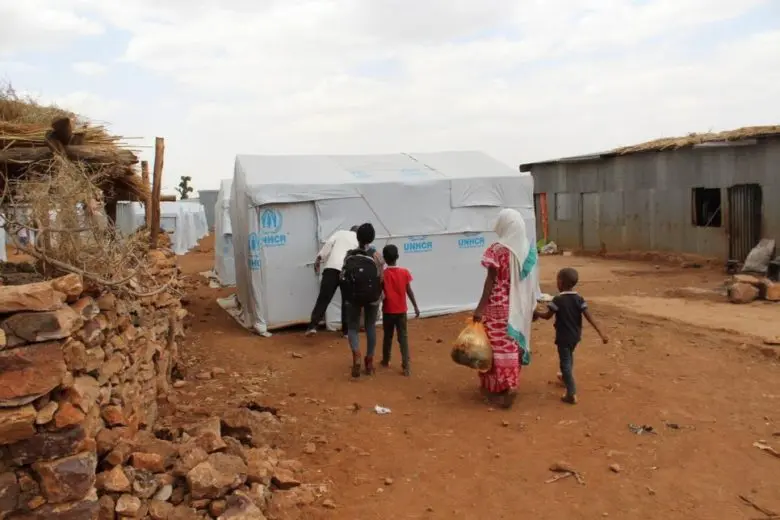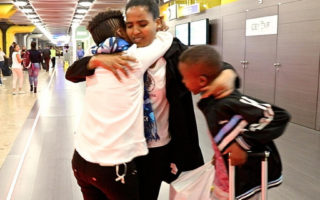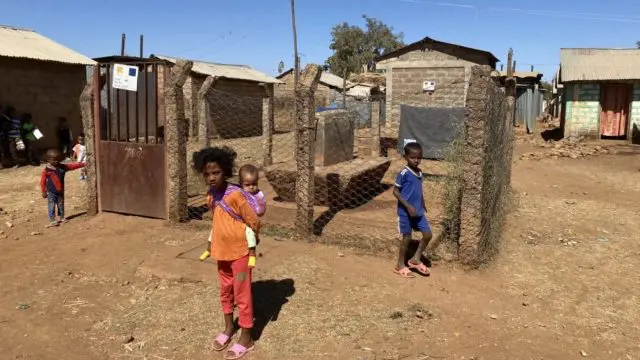
Eritrean refugees arrive in Adi Harush camp, after being relocated from other camps in the north of Ethiopia’s Tigray region that were destroyed in the early months of the conflict. © UNHCR/Hanna Qassis
I am extremely concerned about the conditions of Eritrean refugees in the Tigray region of Ethiopia. Since the outbreak of hostilities in November 2020, they have been deeply affected by the violence and insecurity that has engulfed the region. They have been caught up between warring groups, two refugee camps have been completely destroyed, and tens of thousands of Eritrean refugees were forced to flee – yet again – for their lives. We have received credible and corroborated reports of reprisal attacks, abductions, arrests,and violence meted out against Eritrean refugees for their perceived affiliation with one side or the other throughout this bloody conflict.
I have been disturbed by general criminality against refugees committed, mainly at night, by various armed actors in the Mai Aini and Adi Harush refugee camps. In the past weeks, hundreds of Eritreans have been arrested in Shire. We have sought clarity from the authorities in Mekelle and have requested access to and the immediate release of any unlawfully detained refugees and asylum seekers. We have also heard reports of other very serious allegations of violence against Eritrean refugees and have called on both the Federal Government and the Tigray Regional Government to launch formal investigations into all credible allegations.
The violence and intimidation of Eritrean refugees must stop. Refugees are civilians in need of and with the right to international protection. UNHCR calls on all parties and actors to not only comply with their international legal obligations, including the protection of civilians, but also to stop using and manipulating refugees to score political points.
Our collective focus must instead be on ensuring their protection – including from violence, arrest, and abduction – and stepping up assistance to them. This means urgently constructing a safe new camp for Eritrean refugees who were previously living in the now destroyed Shimelba and Hitsats camps. It means being able to access fuel and cash to run our operations to assist refugees and the two million other displaced people in the Tigray region. It means restoring essential banking services, as well as electricity and communications networks, which are – along with security – essential to ramp up the humanitarian response. And it means opening the airports in Shire and Mekelle, as well as all land routes into Tigray from neighboring regions of Ethiopia so that humanitarians can get more help into the hands of those in need – Eritrean refugees and all other impacted civilians in Tigray.
UNHCR is scaling up its response both in the delivery of relief materials and in the deployment of more senior personnel. But protecting civilians, including Eritrean refugees, and greater efforts to facilitate the humanitarian relief effort are urgently needed by all parties.
Originally published by UNHCR on 13 July 2021.





